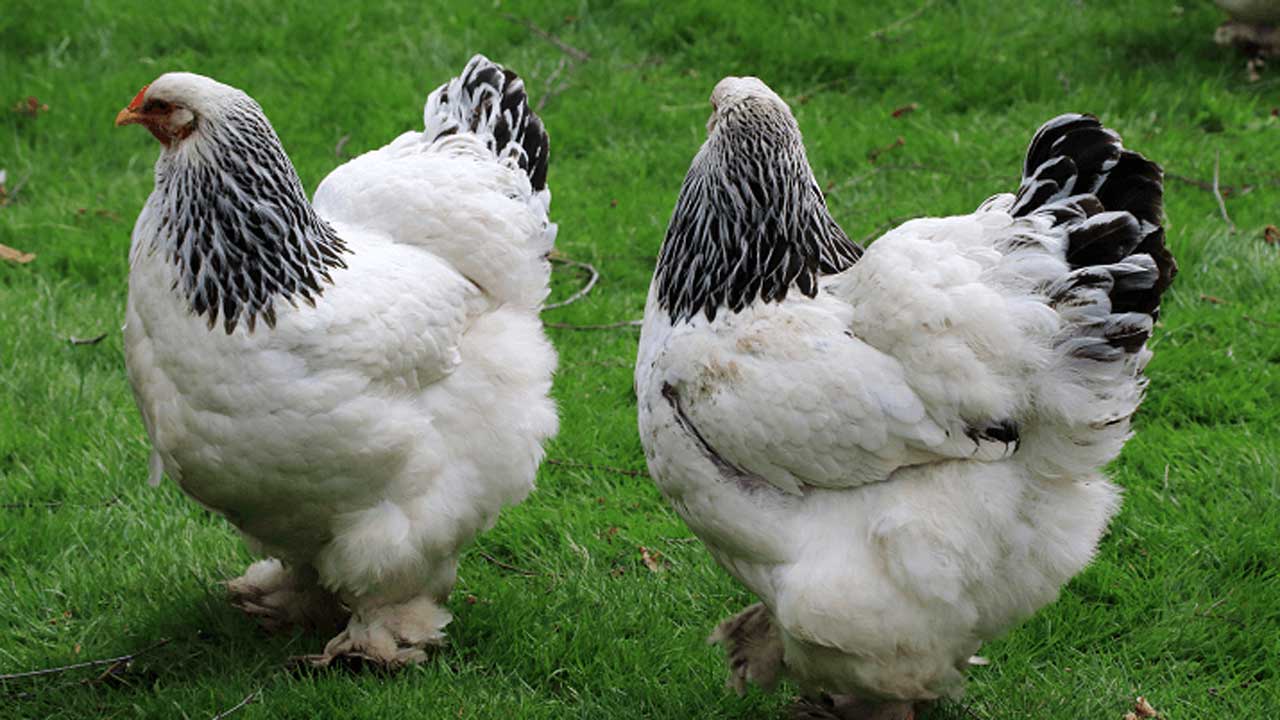Home Agriculture Why Brahma chickens are exceptional for backyard, commercial farming
Why Brahma chickens are exceptional for backyard, commercial farming

One of the most ideal birds for backyard poultry or commercial purposes, which most farmers in Nigeria ignored is the Brahma chicken breeds.
The Brahma chicken is one of the largest chicken breeds, often referred to as the king of chickens. Brahmas are large breed of chicken that has feathered feet with a fluffy appearance. They are both a meat and egg laying chicken. They also make great backyard pets.
Brahmas have attractive plumage, with lots of feathers, which makes them hardy in colder temperatures. They come in a variety of colors – white, buff Columbian, light, dark and gold.
The breed has a pea comb and short but strong beak. Their head is broad with their forehead hanging over the eyes, referred to as a ‘beetle brow’. They have dense plumage with a thick layer, making them a suitable breed for colder climates.
Brahmas can grow to 75cm tall. They are a notably heavy chicken – modern females can grow to 4kg and males to 5kg. They are considered a very good winter layer of big brown eggs weighing approximately 55g-65g.
They are great egg layers; they can lay an average of two to three large eggs weekly, providing a large sum of roughly 120 brown eggs yearly. Unlike many other breeds, they happily lay eggs all year round, including in winter.
It can take the Brahma chickens up to seven months before it starts laying eggs. On average, chickens start laying eggs at about three to five months of age, so the Brahma hens do lay a little later than the average time frame.
Brahmas are known for being very friendly and approachable chickens. They are calm and gentle. This makes them very easy to handle. They make great backyard pets including for those with children. Most Brahmas can be kept with other chicken breeds without any issue.
They can be kept behind low 60-90cm fencing, as they cannot fly well. They are a quiet breed, even the males do not crow loud.
Investigations have shown that raising Brahma chicken is relatively easy due to the breed’s no-fuss attitude and docile nature. Farmers say the breed also don’t require any special attention and don’t have many health problems, which makes them a good choice for novice and backyard chicken flocks.
Like other breeds of chickens, Brahmas need to be fed daily and provided with fresh clean water. They also require some shade on hot days and shelter to protect them from the elements.
Due to their temperament, they tend to get along well with other breeds of chickens. This means they can co-exist and match with other breeds of hens and roosters being raised in a flock.
They are also considered as breeds that mature faster and become more profitable for their meat. Brahma chickens have an average lifespan of five to eight years, though some live for over 10 years.
It was discovered that majority of farmers in the country, especially core poultry farmers, do not have requisite knowledge of the breed. This was discovered in the course of gathering information for this report. They couldn’t provide any information on the breed.
A farmer based in Kaduna State, Mark Tagwai, who knows much about the breed, said in addition to the fact that the breed is not susceptible to parasites, such as mites, worms, and lice, they don’t contend with too many health problems.
He said: “The best way to ensure your chickens are at their ideal weight is to provide them with plenty of fresh, clean water and high-quality food. Along with their normal chicken feed, you should also supplement their food with fresh fruit and vegetables, as well as grass and grains.
“Chickens love to scratch and the Brahma breed is no different. Make sure you give them plenty of room to stretch their legs and scratch the dirt.”
He added that another advantage the breed has over other chickens is the fact that it can withstand cold temperature because of its abundance of feathers.
---
Source: The Guardian Newspaper
https://guardian.ng/features/why-brahma-chickens-are-exceptional-for-backyard-commercial-farming/
Related Post
-
Nigerian Farmer laments : Food Will Be Scarce In 2024 Because The Killings In Northern Nigeria Are Done By Those Interested In Its Mineral Resources
A Nigerian female farmer has stated that from 2024, there will be food scarcity in the nation due to the worsening insecurity...Read more
Jeffery M
Submitted on 2 January, 2024 08:37 am
276 Views
